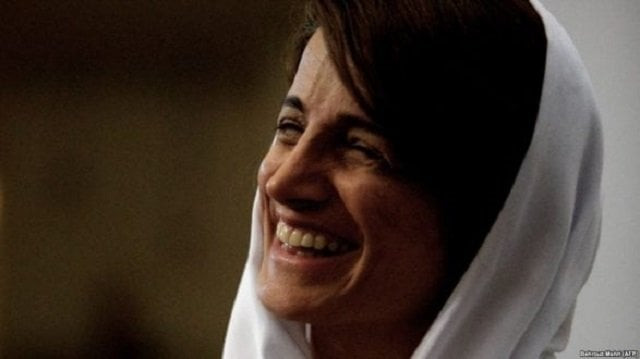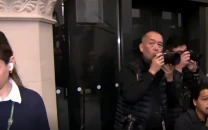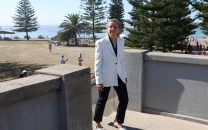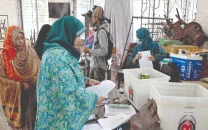Iran accuses rights lawyer of state security offences: husband
Sotoudeh,55, denies the charges but remains in the women's wing of Tehran's notorious Evin prison

Sotoudeh,55, denies the charges but remains in the women's wing of Tehran's notorious Evin prison. PHOTO: AFP
Sotoudeh, 55, denies the charges but remains in the women's wing of Tehran's notorious Evin prison after refusing to post bail of $95,000 (more than 80,000 euros), Reza Khandan.
"My wife is accused of conspiracy, assembly and propaganda against the system" of rule of the Islamic republic, Khandan said.
"My wife considers the accusations against her to be baseless and made up, and the bail demand to be disproportionate," he added.
Sotoudeh, who is one of the few outspoken advocates for human rights in Iran, was detained in her Tehran home on June 13.
Jailed British-Iranian aid worker to face trial on security charges: Iran court head
Her arrest has been condemned by the US State Department and human rights group Amnesty International, which both called for her immediate release.
Earlier this year, Sotoudeh represented several women arrested for protesting against the mandatory wearing of headscarves in Iran.
Tehran police said in February that 29 women had been detained for posing in public without their headscarves.
Sotoudeh won the European Parliament's prestigious Sakharov rights award in 2012 for her work on high-profile human rights and political cases, including those on death row for offences committed as minors.
She spent three years in prison between 2010 and 2013 for "actions against national security" and spreading "propaganda against the system" and remains banned from representing political cases or leaving Iran until 2022.
Iran president's brother arrested on financial crime charges
Sotoudeh has defended journalists and activists including Nobel Peace laureate Shirin Ebadi and several dissidents arrested during mass protests in 2009 against the disputed re-election of hardline president Mahmoud Ahmadinejad.
She had recently spoken out against a new criminal code that allowed only a small number of lawyers just 20 in Tehran to represent individuals charged with state security offences.
During her previous spell in Evin, Sotoudeh staged two hunger strikes in protest at the conditions and over a ban on seeing her son and daughter.
She was released in September 2013 shortly before Iran's then newly elected President Hassan Rouhani, who had campaigned on a pledge to improve civil rights, attended the UN General Assembly.



















COMMENTS
Comments are moderated and generally will be posted if they are on-topic and not abusive.
For more information, please see our Comments FAQ